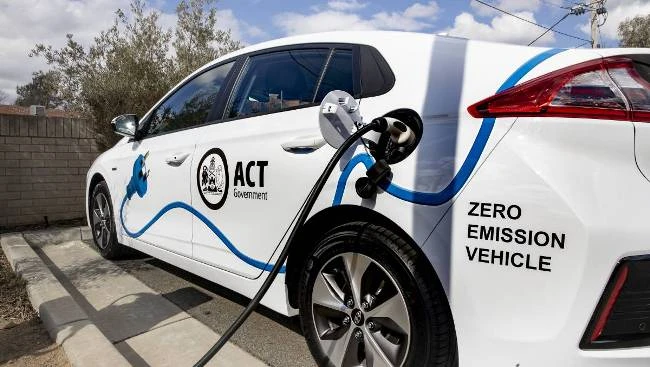Low Voltage: The Charge To EV Vehicles
With world governments declaring a transition to electric vehicles over the next three decades or earlier, such as the U.K. by 2030 or 2035, it would be reasonable to presume that Australian governments would also back any push, without extra roadblocks, to have EVs the primary vehicle for passenger transportation.
The Australian Capital Territory has gone to that length, as has the state government of Tasmania, with the Apple Isle declaring the government’s fleet will be 100% electric by 2030. the A.C.T. began their transition process in 2018 . Neither the A.C.T. or the Tasmanian government have currently declared that any form of EV tax will be implemented.
However, South Australia, New South Wales, and Victoria have all announced that the users of an EV will be subjected to a user tax. Victoria has declared that as soon as July 1, 2021, a road user tax on EVs will be implemented. Tony Weber, from the Federal Chamber of Automotive Industries, isn’t impressed:
“Australian state governments want to kill the technology at its infancy. Is this because some states want to substitute the Commonwealth excise tax with their own tax? Are motorists being caught in a petty game in which the states want to establish a new revenue base at the expense of the Commonwealth?”
Weber also points out the disassociation of the governments here in regards to what other nations are doing in respect to development alternatives for public vehicle transport.
“All around the world, global automotive companies have invested billions of dollars to develop environmentally friendly vehicles. And all around the world, progressive governments have supported the introduction of these vehicles. But here in Australia, we inhibit their introduction by levying extra charges on them. It simply beggars belief at this early stage of electric vehicle introduction.”
Mr Weber’s points take aim at the short-sighted attitude of the Australian states that appear to prefer revenue over doing something that reduces exhaust emissions and going some way to reduce the effects of climate change. “With its proposal to tax LZEVs through a road-user charging tariff, South Australia is discouraging the uptake of environmentally friendly motoring and is turning its back on the topic of Climate Change.”
The argument for the taxes comes from those that see that by using no petrol or diesel, which have excises attached, by using the same roads without those excise contributions, EVs are effectively getting a free ride. This overlooks the charges by electricity suppliers to any location providing an outlet for an EV to be charged, however then it’s pointed out those EV charges don’t go back into the roads.
This is something the Australian Automobile Association has in mind when it comes to a fairer apportioning of charges: “As people move towards electric vehicles and other low emission technologies, revenue from fuel excise is declining, which not only risks road funding, but also means some drivers are paying for roads while others are not, which is neither a fair nor a sustainable model. A nationally consistent approach will be important to drivers, who won’t want a patchwork of unique state charging systems, technologies, or rates.”

Regardless of which, it would appear to be a prudent move by the governments to look at what the A.C.T. is doing: Zero stamp duty on new zero emissions vehicles; 20% discount on registration fees; Annual savings from reduced running costs; Help to reduce greenhouse gas emissions and keep our environment clean and healthy; Quieter driving and reduced noise pollution.
And perhaps: In 2017 the United Kingdom and France announced their intention to ban the sale of new petrol and diesel cars by 2040, with all cars to be fully electric. Since this time, other countries have also committed to phasing out new petrol and diesel car sales including Scotland, India, China, Norway and the Netherlands.
Then there is the announcement in mid November, 2020, by General Motors, here.
As Bob Dylan once sang: the times, they are a-changing…but it seems some governments are stuck in time.